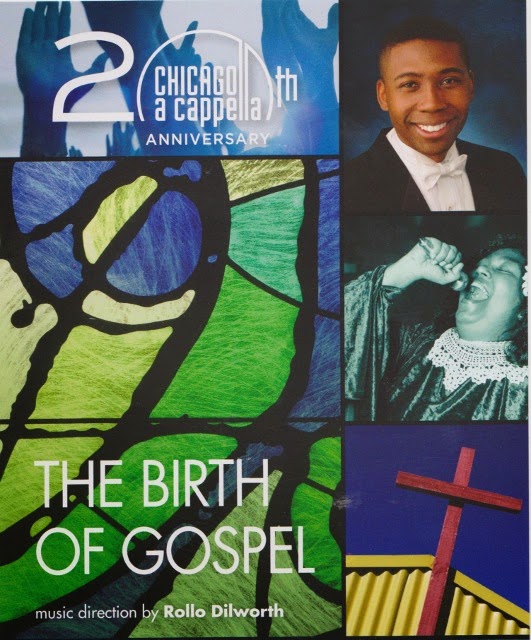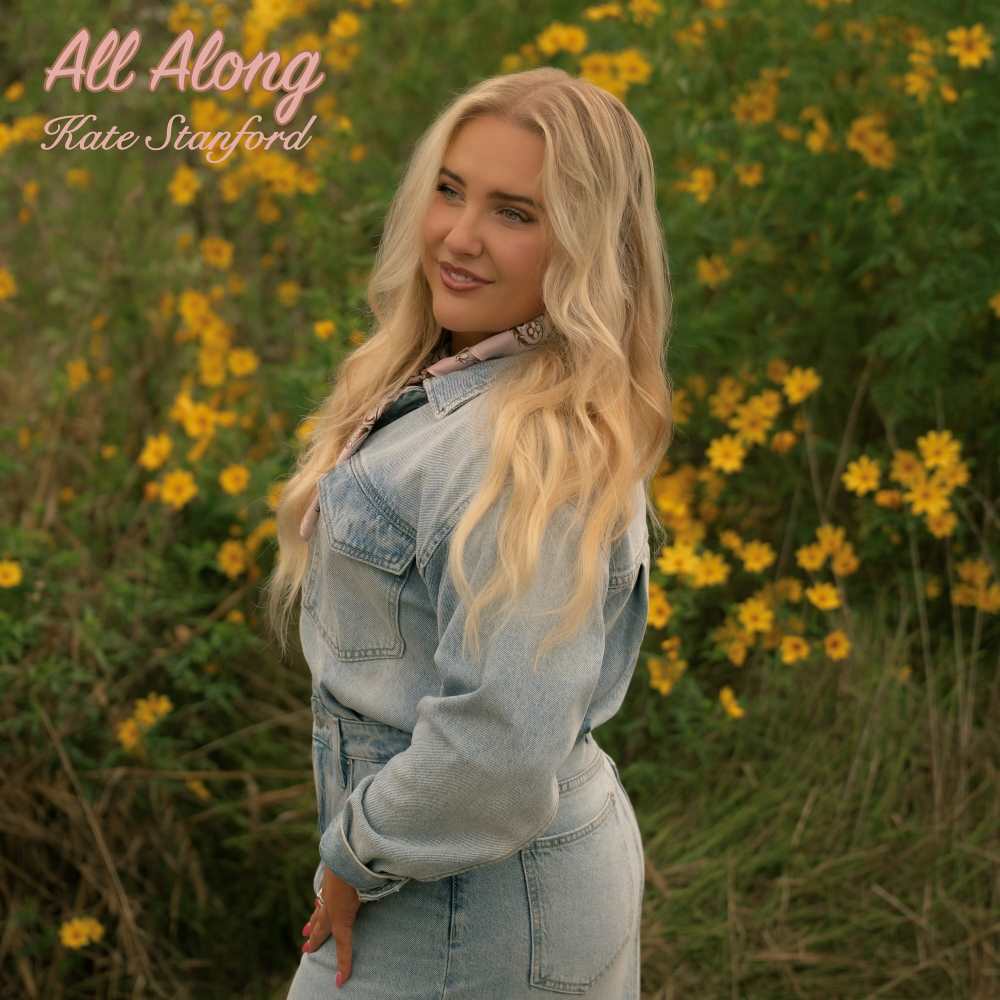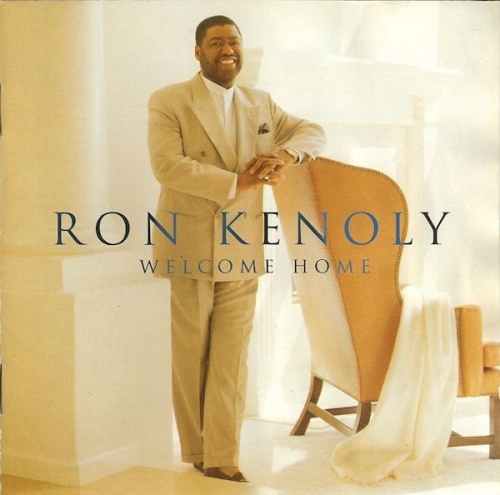“The Birth of Gospel”
Chicago a cappella
Saturday, April 12, 2014
Nichols Concert Hall, Evanston, Illinois
The historic Nichols Concert Hall in Evanston was packed to the rafters to hear Chicago a cappella perform “The Birth of Gospel” yesterday evening.
The mostly Caucasian crowd didn’t need the ghost of Mahalia Jackson to teach them how to clap on the gospel beat. They did just fine whenever the eight-member ensemble—four men and four women—delivered a hand-clapper selection in its two-hour program of songs ranging from spirituals and lining hymns to traditional and contemporary gospel.
Dr. Rollo Dilworth, chair of the Music Education Department at Temple University, was the program’s music director, narrator, and piano accompanist. Wait…piano? For an a cappella ensemble? Founder Jonathan Miller explained that presenting a faithful interpretation of gospel music meant adding piano, even though it was only the second time in its 20-year history that the group sang with accompaniment.
Nevertheless, Dilworth’s piano accompaniment was like a ninth voice. He incorporated Mildred Falls’s jazz licks on “Didn’t It Rain” and a light boogie-woogie beat on “I Want to Walk and Talk with Jesus.”
 |
| Chicago a cappella with Dr. Rollo Dilworth, piano |
Chicago a cappella injected many of the selections—from “Precious Lord” to “Beams of Heaven”—with modern harmonies, though they showed their capacity to sing gospel harmonies on a Dilworth original, “No Rocks a-Cryin’,” and the Walt Whitman and the Soul Children favorite, “Perfect Praise.” Soprano Alexia Kruger lofted operatic high notes a la DeLois Barrett Campbell on Robert Mayes’ “I Want to Walk and Talk with Jesus.” Mezzo-soprano Emily Price’s million-dollar smile lit up the stage throughout the show as she reveled in the blue tonality of several songs.
The men emulated southern gospel’s Statesmen Quartet on their bracing version of “Goodbye, World, Goodbye.” Given the primacy of black gospel quartets during gospel’s Golden Age, it would have been great to hear the male quartet also attempt something by the Soul Stirrers or Pilgrim Travelers, “Mother Bowed” or “Jesus Gave Me Water,” for example.
The Faith Temple COGIC Youth Choir of Evanston sang immediately after intermission. The group, from the church pastored by Bishop Carliss Moody, delivered full-throated selections by Twinkie Clark and Joshua’s Troop. Later, they joined Chicago a cappella on the show-stopping Calvin Bridges’ classic 1981 composition, “I Can Go to God in Prayer.”
 |
| Chicago a cappella and Faith Temple COGIC Youth Choir |
Dilworth’s narration between songs educated the audience on the history of African American sacred music and set the stage for each selection. The ensemble’s rendition of Charles A. Tindley’s “Beams of Heaven,” arranged by Robert Wooten, was the standout.
Dr. Dilworth and Chicago a cappella presented “The Birth of Gospel” with an appropriate and respectful mixture of gravitas and exuberance. They gave the Zion songs a classical patina while retaining their vernacular vibrancy. Just another example of why gospel music is truly an American art form.
The program travels to the Wentz Concert Hall, 171 East Chicago Avenue in Naperville, this afternoon for a 4:00 p.m. program. It closes Saturday, April 19, at the Logan Center for the Arts, 915 East 60th Street in Chicago. For more information or tickets, visit www.chicagoacappella.org or call (773) 281-7820.














 Visit Today : 10
Visit Today : 10 This Month : 275
This Month : 275